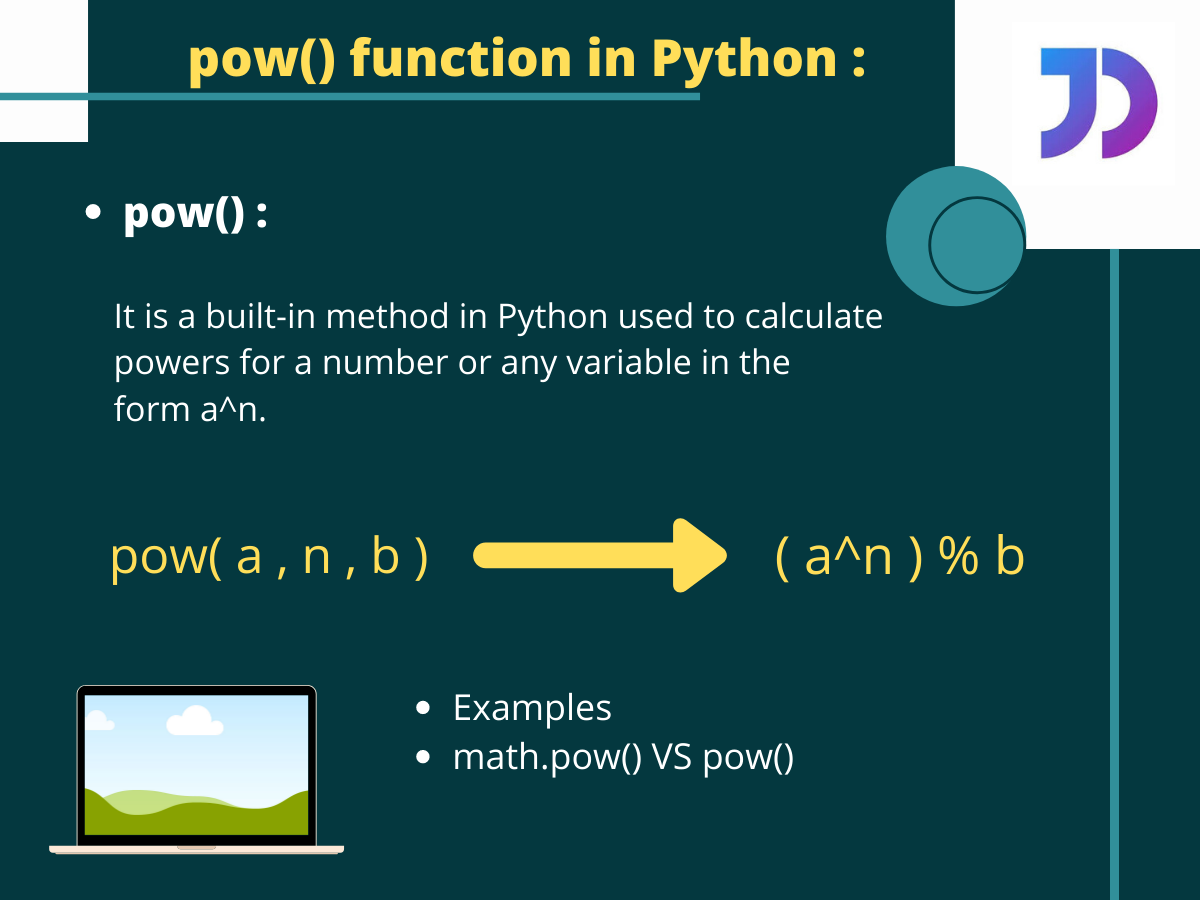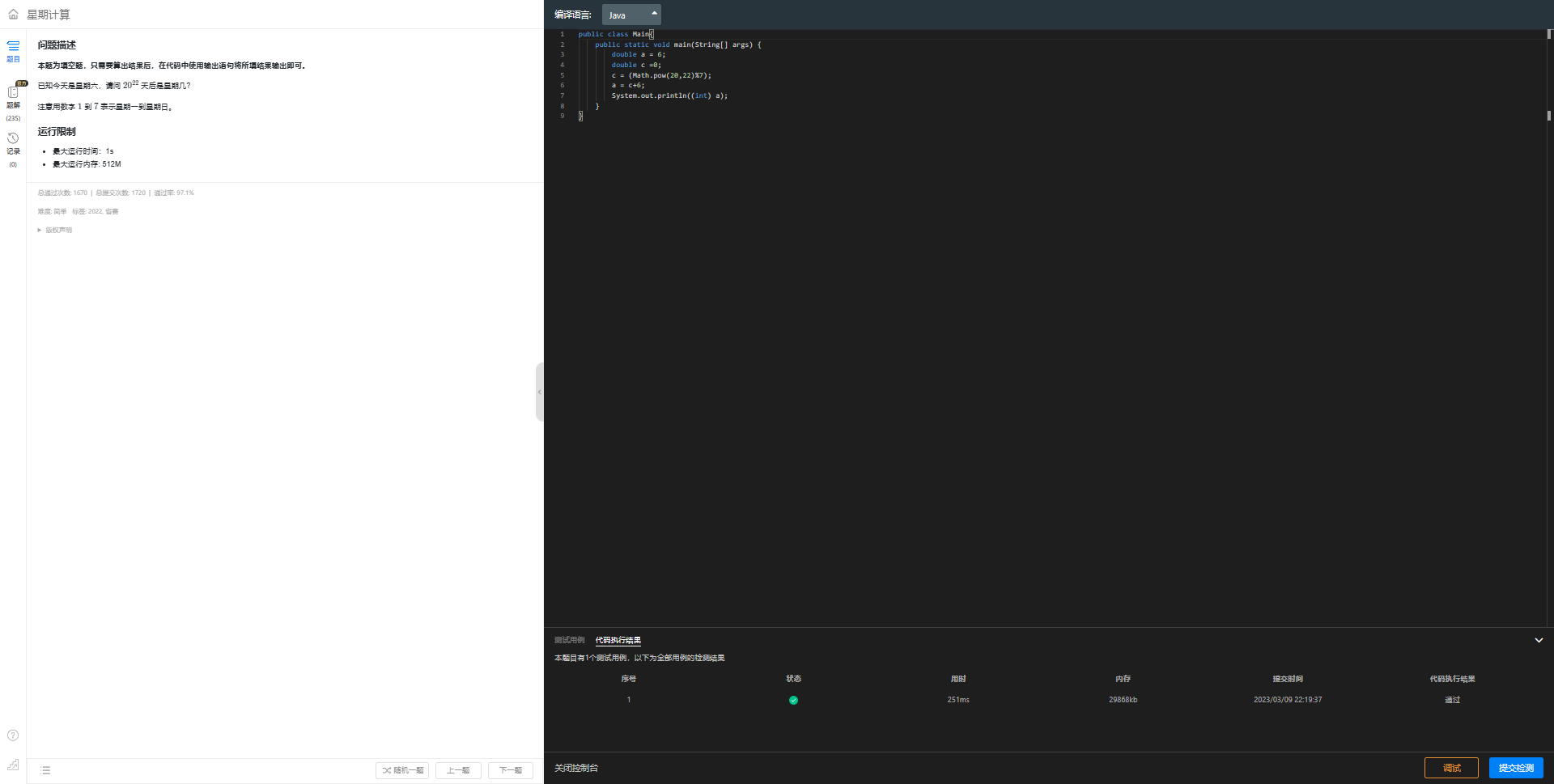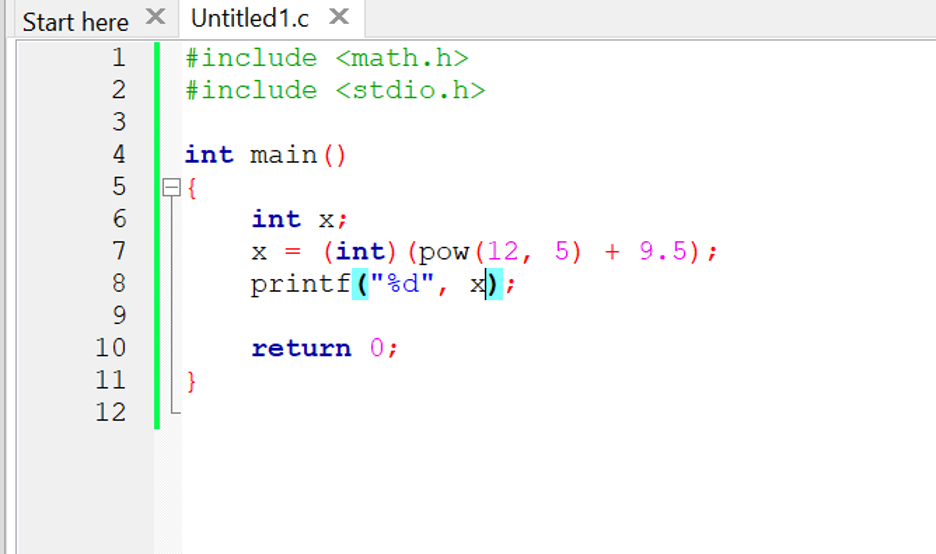C Math Pow
C Math Pow - Given two numbers base and exponent, the c++ or c pow() function finds x raised to the power of y i.e. The pow() function takes two arguments (base value and power value) and, returns the power raised to the base number. This function allows programmers to calculate a base number raised. Basically in c/c++, the exponent value is calculated using the. The c library pow() function of type double accepts the parameter x and y that simplifies the x raised to the power of y. For example, [mathematics] x y = pow(x, y) [in programming]. So, according to the c standard,. The c standard (n1548 §7.12.7.4) has this to say about pow: A domain error occurs if x is finite and negative and y is finite and not an integer value. The pow() function raises a number to the power of another number.
For example, [mathematics] x y = pow(x, y) [in programming]. The pow() function raises a number to the power of another number. A domain error occurs if x is finite and negative and y is finite and not an integer value. The c library pow() function of type double accepts the parameter x and y that simplifies the x raised to the power of y. The pow() function takes two arguments (base value and power value) and, returns the power raised to the base number. The c standard (n1548 §7.12.7.4) has this to say about pow: This function allows programmers to calculate a base number raised. Basically in c/c++, the exponent value is calculated using the. The pow() function is defined in the <math.h> header file. So, according to the c standard,.
The c library pow() function of type double accepts the parameter x and y that simplifies the x raised to the power of y. This function allows programmers to calculate a base number raised. So, according to the c standard,. The c standard (n1548 §7.12.7.4) has this to say about pow: Basically in c/c++, the exponent value is calculated using the. The pow() function raises a number to the power of another number. Given two numbers base and exponent, the c++ or c pow() function finds x raised to the power of y i.e. A domain error occurs if x is finite and negative and y is finite and not an integer value. The pow() function takes two arguments (base value and power value) and, returns the power raised to the base number. For example, [mathematics] x y = pow(x, y) [in programming].
C Tutorial C Math Pow
Basically in c/c++, the exponent value is calculated using the. For example, [mathematics] x y = pow(x, y) [in programming]. The pow() function takes two arguments (base value and power value) and, returns the power raised to the base number. The c library pow() function of type double accepts the parameter x and y that simplifies the x raised to.
POW FUNCTION C++ YouTube
The c library pow() function of type double accepts the parameter x and y that simplifies the x raised to the power of y. Given two numbers base and exponent, the c++ or c pow() function finds x raised to the power of y i.e. So, according to the c standard,. A domain error occurs if x is finite and.
Python pow() method AskPython
The pow() function raises a number to the power of another number. So, according to the c standard,. Given two numbers base and exponent, the c++ or c pow() function finds x raised to the power of y i.e. The c library pow() function of type double accepts the parameter x and y that simplifies the x raised to the.
今日打开第一题小题大做了CSDN社区
The pow() function raises a number to the power of another number. A domain error occurs if x is finite and negative and y is finite and not an integer value. The c library pow() function of type double accepts the parameter x and y that simplifies the x raised to the power of y. For example, [mathematics] x y.
pow() function C Programming Tutorial YouTube
The pow() function takes two arguments (base value and power value) and, returns the power raised to the base number. A domain error occurs if x is finite and negative and y is finite and not an integer value. Given two numbers base and exponent, the c++ or c pow() function finds x raised to the power of y i.e..
Pow Function in C
A domain error occurs if x is finite and negative and y is finite and not an integer value. Given two numbers base and exponent, the c++ or c pow() function finds x raised to the power of y i.e. The pow() function is defined in the <math.h> header file. For example, [mathematics] x y = pow(x, y) [in programming]..
math.h in c++ pow function YouTube
The pow() function raises a number to the power of another number. A domain error occurs if x is finite and negative and y is finite and not an integer value. The c library pow() function of type double accepts the parameter x and y that simplifies the x raised to the power of y. This function allows programmers to.
pow Math function in C Programming Language Video Tutorial YouTube
The pow() function is defined in the <math.h> header file. A domain error occurs if x is finite and negative and y is finite and not an integer value. This function allows programmers to calculate a base number raised. Basically in c/c++, the exponent value is calculated using the. Given two numbers base and exponent, the c++ or c pow().
C Programming Tutorial 10 The pow() Function YouTube
For example, [mathematics] x y = pow(x, y) [in programming]. The pow() function is defined in the <math.h> header file. The pow() function raises a number to the power of another number. The pow() function takes two arguments (base value and power value) and, returns the power raised to the base number. The c library pow() function of type double.
Java Math.pow函数。完整指南Math.pow() 用于计算一个数字上升到另一个数字的幂。pow()方法在考虑 掘金
The pow() function raises a number to the power of another number. The c library pow() function of type double accepts the parameter x and y that simplifies the x raised to the power of y. A domain error occurs if x is finite and negative and y is finite and not an integer value. So, according to the c.
So, According To The C Standard,.
This function allows programmers to calculate a base number raised. The pow() function takes two arguments (base value and power value) and, returns the power raised to the base number. Given two numbers base and exponent, the c++ or c pow() function finds x raised to the power of y i.e. A domain error occurs if x is finite and negative and y is finite and not an integer value.
The C Standard (N1548 §7.12.7.4) Has This To Say About Pow:
The c library pow() function of type double accepts the parameter x and y that simplifies the x raised to the power of y. For example, [mathematics] x y = pow(x, y) [in programming]. The pow() function raises a number to the power of another number. The pow() function is defined in the







